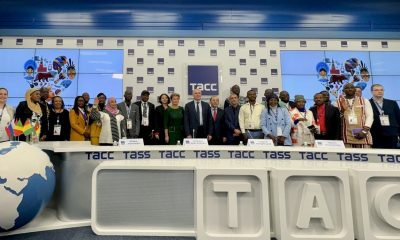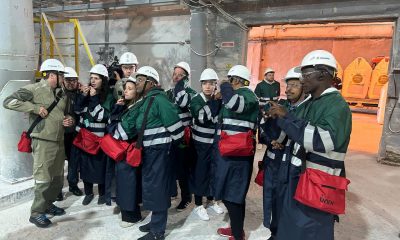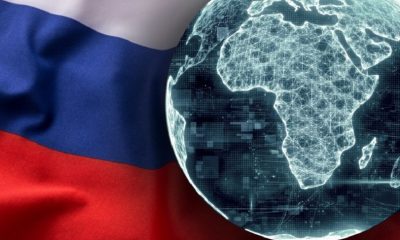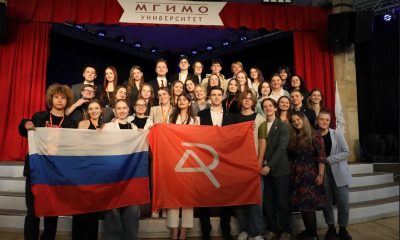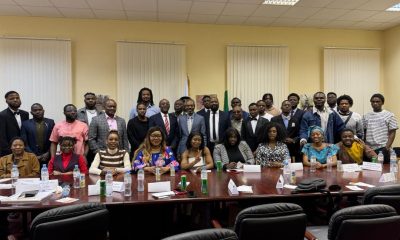Feature/OPED
In Era of COVID-19, Russia’s Strategic Politics of Coronavirus Aid Takes Stage in Africa
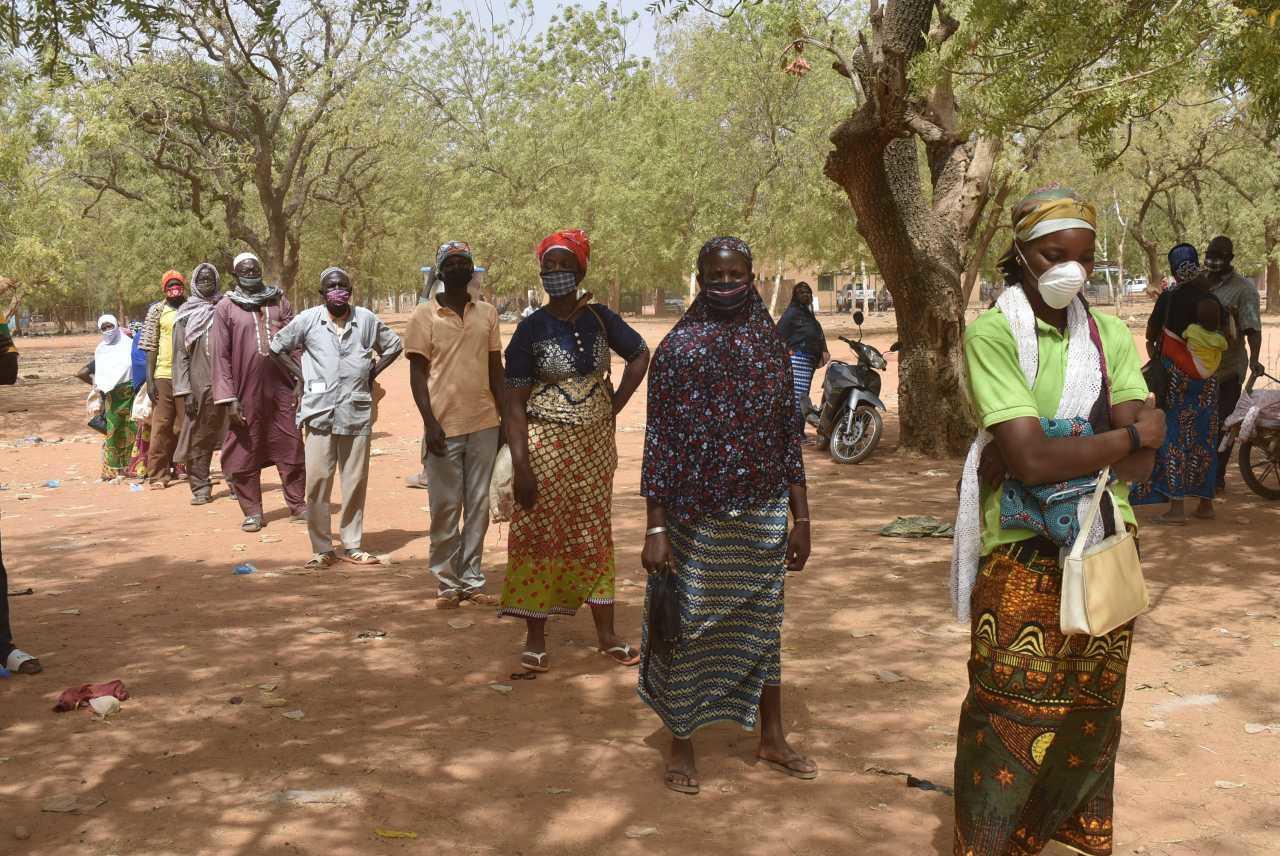
By Kester Kenn Klomegah
With coronavirus rapidly spreading among the population of 148 million, Russia took the third position in the world.
According to the official data provided on May 11, Russia had an aggregate total of 221,344 COVID-19 cases. The United Kingdom and Italy earlier reported 219,183 and 219,070 cases, respectively.
Spain comes in second with 224,390 coronavirus cases, and the United States ranked first with nearly 1.4 million cases.
That are huge gaps compared to over 50,000 cases among 1.3 billion population of Africa, at a first glance, and readily offered an understandable story. South Africa and Maghreb region are the hardest hit and worse affected with the coronavirus in Africa. As expected, the pandemic places diverse impact on the global economies and the society, recommended measures have been taken in a bid to prevent the coronavirus spread.
According to the United Nations Economic Commission for Africa (UNECA) report, Africa still behind European countries when it comes to the COVID-19 outbreak and is far from seeing its peak. While Africa has only reported more than 50,000 confirmed cases of the novel coronavirus early May, the UNECA-released report “COVID-19 in Africa: Protecting Lives and Economies” said “anywhere between 300,000 and 3.3 million African people could lose their lives as a direct result of COVID-19, depending on the intervention measures taken to stop the spread.”
According to the Regional Office for Africa of the World Health Organization (WHO), the hardest hit are South Africa and mostly Maghreb countries of Algeria, Egypt, Morocco and Tunisia. These Maghreb countries have strengthened information controls, instead of upholding transparency during the health crisis, but generally reported to have more than 5,000 infections, while in Tunisia, there are 1,018 patients and 43 people have died. In sub-Saharan West Africa, Ghana and Nigeria are also among the top ten African countries affected the pandemic.
While Russia, for a time, appeared to escape a serious coronavirus outbreak, the situation there has changed drastically during these two months of April and May, – passing Germany and France to become the third most-infected country in the world, according to The Moscow Times. Russia now has the fastest rate of new cases in Europe, and second-fastest rate of new cases in the world behind the United States.
In an important part, Russian health workers are still reporting a shortage on protective equipment. With the picture getting highly scary, Russian President Vladimir Putin worries about any slightest missteps when, in one of his live television speeches, he warned: “We cannot jump ahead of ourselves. Any carelessness or haste may cause a setback.”
Despite its internal difficulties, Russia has been offering coronavirus assistance to a number of Africa countries. Russia is using it bilateral and multilateral mechanisms in addressing these requests filed by African countries since March after the coronavirus pandemic had spread to the continent that consists of 54 countries. However, Lesotho and Comoros are free from the coronavirus.
Russian Foreign Ministry said a number of African countries have requested Moscow’s assistance in combating the coronavirus. “A number of countries on the African continent have requested Russia’s assistance in combating COVID-19. African nations need a wide range of medical equipment, including ventilators, as well as testing systems, individual protective gear, disinfectants and consumables. These requests are carefully studied and the situation in a particular country is taken into account,” it reported, adding that coronavirus spread rates were relatively low in African countries, with the exception of Algeria, Egypt, Morocco and South Africa.
“However, this issue is causing serious concern to many countries on the continent. The social and economic situations in many of these countries are complicated, while high population density, poor healthcare systems, various crises and conflicts, transparent borders and uncontrolled migration can lead to a sharp rise in cases and unpredictable consequences,” the statement said.
According to the Russian Foreign Ministry, the pandemic may negatively affect African countries’ ability to carry out major tasks to overcome poverty, ensure sustainable development and implement integration projects. Russia had been assisting African countries in responding to natural disasters and the spread of infectious diseases, including the Ebola fever. “We will do what we can to help the continent combat the coronavirus pandemic, using bilateral mechanisms and those of international organizations,” the ministry said, noting that “when making decisions, we will take a whole set of factors into account, including Russia’s coronavirus spread rate.”
Understandably, wholesale provision of coronavirus assistance is, absolutely and practically, impossible to Africa. Therefore, in the shadow of COVID-19, Russia is strategically choosing for its coronavirus aid destinations inside Africa, experts argued. Historically, Russia has had a high preference for the Maghreb region and southern African countries. Thus, in the months of April and May, aid was delivered to Algeria, Egypt, Morocco and Tunisia in North Africa. Ethiopia and Djibouti in eastern Africa. In southern Africa, the beneficiaries included Mozambique, South Africa and Zimbabwe, according to various media reports inside Africa.
On May 11, at the National Institute of Biomedical Research (NIBI) of the Democratic Republic of Congo (DRC), more than 28 thousand units of laboratory supplies and 8 thousand units of personal protective equipment including protective clothing, respirators, reusable full-face masks with a set of filters and gloves were delivered. According to the Ministry of Foreign Affairs media report, the cargo was sent by Russia’s Rospotrebnadzor.
The delivery event was attended by the DRC Minister of Health, Dr Eteni Longondo, Advisers to the President, P. Muanda Congo and S. Sial Sial, as well as the Director of the National Institute of Biomedical Research (NIBI), Professor J.M. Muyembe Tampam and Russian Ambassador Aleksey Leonidovich Sentebov.
According to WHO, Congo confirmed its first case of coronavirus mid-March, and as of May 5, there were only 264 confirmed cases and 11 deaths in a country of some 80 million people. Therefore, the Russia’s assistance provided is extremely timely, since epidemics of coronavirus, Ebola, Cholera and Measles broke out, at the same time, in the country. In difficult sanitary and epidemiological conditions, DR Congo is experiencing a sharp shortage of equipment, tests, medicines, vaccines, and there are not enough masks, gloves, and disinfectants.
In this regard, the Congolese are looking forward to the arrival of two mobile laboratories at the end of May this year, which, due to their versatility, can be used to combat the spread of a number of especially dangerous infections, including COVID-19. Russia plans to train Congolese personnel in these microbiological complexes.
In addition, as part of the provision of gratuitous anti-epidemic assistance, Rospotrebnadzor plans to send modern laboratory equipment, diagnostic preparations, vaccines against BVE, cholera, plague and measles, test systems for the detection of Ebola, dengue fever, malaria, cholera and coronavirus to Kinshasa.
Russian-Congolese health contacts are quite extensive and are backed by an agreement signed between the Federal Service for Supervision of Consumer Rights Protection and Humanitarian Affairs and the DRC on the sidelines of the Russia-Africa summit in October 2019 in Sochi. Over the course of several years, Russian virologists have repeatedly visited this country in order to identify its urgent needs, held meetings with local specialists and, in the most difficult period of the global spread of coronavirus in the Republic of Congo.
Russia’s Sputnik News, under the headline, “Tunisia Asks Russia for Respirators, Masks, Medical Equipment Amid Pandemic” quoted the Tunisian Ambassador to the Russian Federation, Tarak ben Salem who said: “This request for assistance is a part of friendly relations between Tunisia and Russia. Tunisia, like many other countries, is facing an unprecedented health and economic crisis. We need respirators, masks and medical equipment that will help provide services in public hospitals.”
“Tunisia, a country close to Italy, appreciated the assistance provided by Russia to this neighboring friendly country,” Salem explained and added “Tunisia hopes for a step forward from Russia, which has promised to consider our request. This can only confirm the quality of friendly and fraternal relations between our countries and our peoples.”
Nevertheless, Russia is also exploring the opportunities in Tunisia, and as part of its geopolitical expansion and influence in Maghreb region. According to the ambassador, Russia has pledged to look into Tunisia’s request.
The United States had granted $500,000 in health assistance to address the coronavirus outbreak in Djibouti. Shortly thereafter, the Russian Foreign Ministry also posted to its official website that Russia had delivered humanitarian assistance to Djibouti in East Africa. Late April, Russian humanitarian aid to the Ministry of Health of the Republic of Djibouti was delivered and was described as part of a joint project with the World Health Organization. It was financed by the Russian Government to enhance Djibouti’s potential in the field of medical emergency readiness and response.
“This humanitarian action comes in response to an official request from the Djiboutian authorities in view of the serious deterioration in the sanitary and epidemiological situation in the country caused by heavy floods and the spread of the novel COVID-19 infection. A consignment of humanitarian aid weighing a total of 13.5 tons and consisting of more than 20 multi-purpose medical modules to fight dangerous infectious diseases was delivered to Djibouti’s seaport. The shipment included tents and components to build two medical units for rendering skilled assistance to over 200,000 people,” according to report of the Russian Ministry of Foreign Affairs.
The report indicated that “the ceremony was attended by Russian Ambassador to Djibouti Mikhail Golovanov, WHO Representative Dr Ahmed Zouiten and Djiboutian Minister of Health Mohamed Warsama Dirieh. The Djiboutian leadership expressed its sincere appreciation to the Russian side for the assistance amid such a complicated epidemiological situation.”
Djibouti has seen a rapid spike in coronavirus cases with the Horn of Africa nation, as the population largely ignores measures imposed by authorities. As a tiny country, it shares borders with Somalia in the south, Ethiopia in the south and west, Eritrea in the north and the Red Sea. Djibouti is a multi-ethnic, with a population about one million, but strategically important country that hosts the United States and French military bases, has recorded 1,116 positive coronavirus cases — small on a global scale. Only two (2) people have died to date, according to the report from the Ministry of Health.
With its burgeoning commercial hub, it serves strategically as the site for various foreign military bases. The hosting of foreign military bases is an important part of Djibouti’s economy. The United States pays $63 million a year to rent Camp Lemonnier, France and Japan each pay about $30 million a year and China pays $20 million a year. The lease payments added up to more than 5% of Djibouti’s GDP of $2.3 billion in 2018.
China has stepped up its military presence in Africa, with ongoing plans to secure an even greater military presence in Djibouti specifically. China’s presence in Djibouti is tied to strategic ports to ensure the security of Chinese assets. Djibouti’s strategic location makes the country prime for an increased military presence.
Undoubtedly, Russia has shown interest in strengthening its ties with the country. Russians believe it could take steps to overcome the impasses in the disputes between Ethiopia and Eritrea, between Ethiopia and Djibouti, as well as international support for Somalia’s efforts to restore its statehood in the Horn of Africa. It has proposed an elaborate plan from maintaining peace and security to promoting socioeconomic development in the Horn of Africa and that includes Djibouti.
Over the past few years, Foreign Minister Sergey Lavrov has had extensive discussions on investment in high technology and transport logistics in Djibouti and Eritrea, both neighboring countries in the region.
It is worth to note that Russia and Algeria have friendly sustainable relations. A Russian cargo aircraft has delivered personal protective equipment to help tackle the novel coronavirus pandemic in Algeria. Algeria’s Minister of Health, Population and Hospital Reform Abderrahmane Benbouzid and Russian Ambassador Igor Belyaev were at the air base of Boufarik, Blida (50-km south of Algiers), to take delivery of the cargo, Algeria Press Service reported April 30.
According to the information made available, the Russia’s humanitarian aid, consists of medical protective equipment was purchased by the Rosoboronexport, the State Arms Exporter, it was done upon the Russian government’s instructions in order to fight the coronavirus pandemic. “Among the medical items delivered to Algeria are infrared thermometers, suits, medical masks and other goods, needed by the friendly nation of Algeria and its healthcare sector,” the media said. Cooperation in fighting COVID-19 strengthens the humanitarian aspect of Russian-Algerian relations.
Given this global scenario of COVID-19, it becomes a conduit to play some game cards. For instance, Russia’s pursuit of playing a bigger role in global political realm is grounded on the consequences Russia faced in the aftermath of the collapse of USSR. That was followed by a huge political chaos and instability of its socio-economic space. However, Russia cling to it as the new game changer and now plays the catch-up. Russia seems to have neglected the potential opportunities in Africa, according to Punsara Amarasinghe, a former research fellow at the Faculty of Law, Higher School of Economics in Moscow, and now a PhD candidate in international law from the Sant’Anna School of Advanced Studies in Pisa, Italy.
“Perhaps, Russia needs a lot more of efforts to revive old ties in African countries, to engage in a large scale investments and energy. Humanitarian assistance could be a strategic mechanism, the lack of Russian soft power in African states is another main trouble that continues to hinder Russia’s realization of its policy projects,” Amarasinghe wrote in his emailed discussion.
He further compares how Britain, France and even India are performing with the use of their soft power in African space, added finally that “Russia still has the opportunities, Moscow only needs to address more on African states beyond arms trade and offering assistance, but covering much important issues such as education, energy politics and investment. These have to be taken in practical terms, not just mere rhetoric.”
On April 29, Russian International Affairs Council (RIAC), a powerful autonomous Russian NGO that focuses on foreign policy, held an online conference under theme “The Future of Africa in the Context of Energy Crisis and COVID-19 Pandemic” – with participation of foreign policy experts on Africa. Chairing the online discussions, Igor Ivanov, former Russian Foreign Affairs Minister and now RIAC President, made an opening speech. He pointed out that Russia’s task in Africa following the pandemic is to present a strategy and define priorities with the countries of the continent, build on the decisions of the first Russia-Africa Summit, held in Sochi in October 2019.
On the development of cooperation between Russia and African countries, Igor Ivanov strongly reminded that “Russia’s task is to prevent a rollback in relations with African countries. It is necessary to use the momentum set by the first Russia-Africa Summit. First of all, it is necessary for Russia to define explicitly its priorities: why are we returning to Africa? Just to make money, strengthen our international presence, help African countries or to participate in the formation of the new world order together with the African countries? Some general statements of a fundamental nature were made at the first Summit, now it is necessary to move from general statements to specificity.”
The speakers presented scenarios of the development of the COVID-19 coronavirus pandemic on the continent, the impact of the coronavirus on various industries, the economic and social development of African countries. Experts discussed the role of integration associations on the continent, the existing and the expected problems in the work of humanitarian missions and programs supervised by international organizations.
For many African countries, it is the time to reflect on African countries’ responses to COVID-19. It is time to take the opportunity it offers to catalyze action on structural deficits. The current predicament triggers long-term shifts toward universal access to health and education. It is time to think of improving communities with the necessary infrastructure. Although it has abundant natural resources, Africa remains the world’s poorest and least developed continent, the result of a variety of causes that include corrupt governments, and worse with poor development policies. It is time to prioritize and focus on sustainable development.
With its 1.3 billion people, Africa accounts for about 16% of the world’s human population. Africa, comprising 54 countries, is the world’s second largest and second-most populous continent after Asia. As the coronavirus spreads around the world, many foreign eyes, such as the United States and Canada, Europe, China, Russia and the Gulf States, are still on Africa.
Significantly, the global pandemic has exposed the weaknesses in Africa’s health system, adversely affected its economic sectors, it is therefore necessary for African leaders, the African Union (AU), Regional organization and African partners be reminded of issues relating to sustainable economic development and subsequent integration. It sets further as a reminder to highlight and prioritize the significance of these in the context of tasks set out by the UN 2030 Agenda for Sustainable Development and the African Union’s Agenda 2063.
By Kester Kenn Klomegah writes frequently about Russia, Africa and the BRICS.
Feature/OPED
How Christians Can Stay Connected to Their Faith During This Lenten Period

It’s that time of year again, when Christians come together in fasting and prayer. Whether observing the traditional Lent or entering a focused period of reflection, it’s a chance to connect more deeply with God, and for many, this season even sets the tone for the year ahead.
Of course, staying focused isn’t always easy. Life has a way of throwing distractions your way, a nosy neighbour, a bus driver who refuses to give you your change, or that colleague testing your patience. Keeping your peace takes intention, and turning off the noise and staying on course requires an act of devotion.
Fasting is meant to create a quiet space in your life, but if that space isn’t filled with something meaningful, old habits can creep back in. Sustaining that focus requires reinforcement beyond physical gatherings, and one way to do so is to tune in to faith-based programming to remain spiritually aligned throughout the period and beyond.
On GOtv, Christian channels such as Dove TV channel 113, Faith TV and Trace Gospel provide sermons, worship experiences and teachings that echo what is being practised in churches across the country.
From intentional conversations on Faith TV on GOtv channel 110 to true worship on Trace Gospel on channel 47, these channels provide nurturing content rooted in biblical teaching, worship, and life application. Viewers are met with inspiring sermons, reflections on scripture, and worship sessions that help form a rhythm of devotion. During fasting periods, this kind of consistent spiritual input becomes a source of encouragement, helping believers stay anchored in prayer and mindful of God’s presence throughout their daily routines.
To catch all these channels and more, simply subscribe, upgrade, or reconnect by downloading the MyGOtv App or dialling *288#. You can also stream anytime with the GOtv Stream App.
Plus, with the We Got You offer, available until 28th February 2026, subscribers automatically upgrade to the next package at no extra cost, giving you access to more channels this season.
Feature/OPED
Turning Stolen Hardware into a Data Dead-End

By Apu Pavithran
In Johannesburg, the “city of gold,” the most valuable resource being mined isn’t underground; it’s in the pockets of your employees.
With an average of 189 cellphones reported stolen daily in South Africa, Gauteng province has become the hub of a growing enterprise risk landscape.
For IT leaders across the continent, a “lost phone” is rarely a matter of a misplaced device. It is frequently the result of a coordinated “snatch and grab,” where the hardware is incidental, and corporate data is the true objective.
Industry reports show that 68% of company-owned device breaches stem from lost or stolen hardware. In this context, treating mobile security as a “nice-to-have” insurance policy is no longer an option. It must function as an operational control designed for inevitability.
In the City of Gold, Data Is the Real Prize
When a fintech agent’s device vanishes, the $300 handset cost is a rounding error. The real exposure lies in what that device represents: authorised access to enterprise systems, financial tools, customer data, and internal networks.
Attackers typically pursue one of two outcomes: a quick wipe for resale on the secondary market or, far more dangerously, a deep dive into corporate apps to extract liquid assets or sellable data.
Clearly, many organisations operate under the dangerous assumption that default manufacturer security is sufficient. In reality, a PIN or fingerprint is a flimsy barrier if a device is misconfigured or snatched while unlocked. Once an attacker gets in, they aren’t just holding a phone; they are holding the keys to copy data, reset passwords, or even access admin tools.
The risk intensifies when identity-verification systems are tied directly to the compromised device. Multi-Factor Authentication (MFA), widely regarded as a gold standard, can become a vulnerability if the authentication factor and the primary access point reside on the same compromised device. In such cases, the attacker may not just have a phone; they now have a valid digital identity.
The exposure does not end at authentication. It expands with the structure of the modern workforce.
65% of African SMEs and startups now operate distributed teams. The Bring Your Own Device (BYOD) culture has left many IT departments blind to the health of their fleet, as personal devices may be outdated or jailbroken without any easy way to know.
Device theft is not new in Africa. High-profile incidents, including stolen government hardware, reinforce a simple truth: physical loss is inevitable. The real measure of resilience is whether that loss has any residual value. You may not stop the theft. But you can eliminate the reward.
Theft Is Inevitable, Exposure is Not
If theft cannot always be prevented, systems must be designed so that stolen devices yield nothing of consequence. This shift requires structured, automated controls designed to contain risk the moment loss occurs.
Develop an Incident Response Plan (IRP)
The moment a device is reported missing, predefined actions should trigger automatically: access revocation, session termination, credential reset and remote lock or wipe.
However, such technical playbooks are only as fast as the people who trigger them. Employees must be trained as the first line of defence —not just in the use of strong PINs and biometrics, but in the critical culture of immediate reporting. In high-risk environments, containment windows are measured in minutes, not hours.
Audit and Monitor the Fleet Regularly
Control begins with visibility. Without a continuous, comprehensive audit, IT teams are left responding to incidents after damage has occurred.
Opting for tools like Endpoint Detection and Response (EDR) allows IT teams to spot subtle, suspicious activities or unusual access attempts that signal a compromised device.
Review Device Security Policies
Security controls must be enforced at the management layer, not left to user discretion. Encryption, patch updates and screen-lock policies should be mandatory across corporate devices.
In BYOD environments, ownership-aware policies are essential. Corporate data must remain governed by enterprise controls regardless of device ownership.
Decouple Identity from the Device
Legacy SMS-based authentication models introduce avoidable risk when the authentication channel resides on the compromised handset. Stronger identity models, including hardware tokens, reduce this dependency.
At the same time, native anti-theft features introduced by Apple and Google, such as behavioural theft detection and enforced security delays, add valuable defensive layers. These controls should be embedded into enterprise baselines rather than treated as optional enhancements.
When Stolen Hardware Becomes Worthless
With POPIA penalties now reaching up to R10 million or a decade of imprisonment for serious data loss offences, the Information Regulator has made one thing clear: liability is strict, and the financial fallout is absolute. Yet, a PwC survey reveals a staggering gap: only 28% of South African organisations are prioritising proactive security over reactive firefighting.
At the same time, the continent is battling a massive cybersecurity skills shortage. Enterprises simply do not have the boots on the ground to manually patch every vulnerability or chase every “lost” terminal. In this climate, the only viable path is to automate the defence of your data.
Modern mobile device management (MDM) platforms provide this automation layer.
In field operations, “where” is the first indicator of “what.” If a tablet assigned to a Cape Town district suddenly pings on a highway heading out of the city, you don’t need a notification an hour later—you need an immediate response. An effective MDM system offers geofencing capabilities, automatically triggering a remote lock when devices breach predefined zones.
On Supervised iOS and Android Enterprise devices, enforced Factory Reset Protection (FRP) ensures that even after a forced wipe, the device cannot be reactivated without organisational credentials, eliminating resale value.
For BYOD environments, we cannot ignore the fear that corporate oversight equates to a digital invasion of personal lives. However, containerization through managed Work Profiles creates a secure boundary between corporate and personal data. This enables selective wipe capabilities, removing enterprise assets without intruding on personal privacy.
When integrated with identity providers, device posture and user identity can be evaluated together through multi-condition compliance rules. Access can then be granted, restricted, or revoked based on real-time risk signals.
Platforms built around unified endpoint management and identity integration enable this model of control. At Hexnode, this convergence of device governance and identity enforcement forms the foundation of a proactive security mandate. It transforms mobile fleets from distributed risk points into centrally controlled assets.
In high-risk environments, security cannot be passive. The goal is not recovery. It is irrelevant, ensuring that once a device leaves authorised hands, it holds no data, no identity leverage, and no operational value.
Apu Pavithran is the CEO and founder of Hexnode
Feature/OPED
Daniel Koussou Highlights Self-Awareness as Key to Business Success

By Adedapo Adesanya
At a time when young entrepreneurs are reshaping global industries—including the traditionally capital-intensive oil and gas sector—Ambassador Daniel Koussou has emerged as a compelling example of how resilience, strategic foresight, and disciplined execution can transform modest beginnings into a thriving business conglomerate.
Koussou, who is the chairman of the Nigeria Chapter of the International Human Rights Observatory-Africa (IHRO-Africa), currently heads the Committee on Economic Diplomacy, Trade and Investment for the forum’s Nigeria chapter. He is one of the young entrepreneurs instilling a culture of nation-building and leadership dynamics that are key to the nation’s transformation in the new millennium.
The entrepreneurial landscape in Nigeria is rapidly evolving, with leaders like Koussou paving the way for innovation and growth, and changing the face of the global business climate. Being enthusiastic about entrepreneurship, Koussou notes that “the best thing that can happen to any entrepreneur is to start chasing their dreams as early as possible. One of the first things I realised in life is self-awareness. If you want to connect the dots, you must start early and know your purpose.”
Successful business people are passionate about their business and stubbornly driven to succeed. Koussou stresses the importance of persistence and resilience. He says he realised early that he had a ‘calling’ and pursued it with all his strength, “working long weekends and into the night, giving up all but necessary expenditures, and pressing on through severe setbacks.”
However, he clarifies that what accounted for an early success is not just tenacity but also the ability to adapt, to recognise and respond to rapidly changing markets and unexpected events.
Ambassador Koussou is the CEO of Dau-O GIK Oil and Gas Limited, an indigenous oil and natural gas company with a global outlook, delivering solutions that power industries, strengthen communities, and fuel progress. The firm’s operations span exploration, production, refining, and distribution.
Recognising the value of strategic alliances, Koussou partners with business like-minds, a move that significantly bolsters Dau-O GIK’s credibility and capacity in the oil industry. This partnership exemplifies the importance of building strong networks and collaborations.
The astute businessman, who was recently nominated by the African Union’s Agenda 2063 as AU Special Envoy on Oil and Gas (Continental), admonishes young entrepreneurs to be disciplined and firm in their decision-making, a quality he attributed to his success as a player in the oil and gas sector. By embracing opportunities, building strong partnerships, and maintaining a commitment to excellence, Koussou has not only achieved personal success but has also set a benchmark for future generations of African entrepreneurs.
His journey serves as a powerful reminder that with determination and vision, success is within reach.
-

 Feature/OPED6 years ago
Feature/OPED6 years agoDavos was Different this year
-
Travel/Tourism10 years ago
Lagos Seals Western Lodge Hotel In Ikorodu
-

 Showbiz3 years ago
Showbiz3 years agoEstranged Lover Releases Videos of Empress Njamah Bathing
-

 Banking8 years ago
Banking8 years agoSort Codes of GTBank Branches in Nigeria
-

 Economy3 years ago
Economy3 years agoSubsidy Removal: CNG at N130 Per Litre Cheaper Than Petrol—IPMAN
-

 Banking3 years ago
Banking3 years agoSort Codes of UBA Branches in Nigeria
-

 Banking3 years ago
Banking3 years agoFirst Bank Announces Planned Downtime
-

 Sports3 years ago
Sports3 years agoHighest Paid Nigerian Footballer – How Much Do Nigerian Footballers Earn




